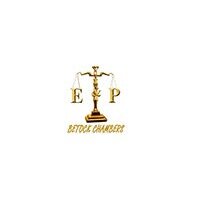Best Job Discrimination Lawyers in Sierra Leone
Share your needs with us, get contacted by law firms.
Free. Takes 2 min.
Or refine your search by selecting a city:
List of the best lawyers in Sierra Leone
About Job Discrimination Law in Sierra Leone
Job discrimination occurs when an employer treats an employee unfairly due to their race, gender, religion, age, disability, or other protected characteristics. In Sierra Leone, job discrimination is prohibited by law, and individuals who have been discriminated against have legal recourse to seek justice.
Why You May Need a Lawyer
You may need a lawyer if you believe you have been a victim of job discrimination in Sierra Leone. A lawyer can help you understand your rights, gather evidence to support your claim, and represent you in legal proceedings. They can also negotiate with employers on your behalf to secure compensation for any damages you have suffered.
Local Laws Overview
In Sierra Leone, the Employment Act of 1971 prohibits job discrimination based on race, gender, religion, disability, age, or other protected characteristics. The Act also establishes the rights of employees to fair treatment in the workplace and outlines the legal remedies available to individuals who have experienced discrimination.
Frequently Asked Questions
Q: What are the protected characteristics under Sierra Leone's job discrimination laws?
A: The protected characteristics include race, gender, religion, disability, age, marital status, and pregnancy.
Q: How do I file a job discrimination complaint in Sierra Leone?
A: You can file a complaint with the Ministry of Labour, the Human Rights Commission, or seek legal assistance to help you navigate the process.
Q: Can I be fired for reporting job discrimination in Sierra Leone?
A: No, it is illegal for an employer to retaliate against an employee for reporting job discrimination.
Q: What damages can I recover in a job discrimination case in Sierra Leone?
A: You may be entitled to compensation for lost wages, emotional distress, and punitive damages.
Q: Is there a time limit for filing a job discrimination claim in Sierra Leone?
A: Yes, you typically have 6 months from the date of the discriminatory act to file a claim.
Q: Can I sue my employer for job discrimination in Sierra Leone?
A: Yes, you can file a lawsuit against your employer for job discrimination in a court of law.
Q: How long does a job discrimination case take to resolve in Sierra Leone?
A: The timeline for resolving a job discrimination case can vary, but it may take several months to several years to reach a resolution.
Q: Can I settle a job discrimination case out of court in Sierra Leone?
A: Yes, you can negotiate a settlement with your employer before taking the case to court.
Q: Are there any exceptions to the job discrimination laws in Sierra Leone?
A: There may be exceptions for certain religious organizations or entities that can demonstrate a legitimate occupational qualification for the discriminatory practice.
Q: How can a lawyer help me with my job discrimination case in Sierra Leone?
A: A lawyer can provide legal advice, represent you in negotiations with your employer, gather evidence to support your claim, and advocate for your rights in court.
Additional Resources
For more information on job discrimination in Sierra Leone, you can contact the Ministry of Labour, the Human Rights Commission, or seek assistance from legal aid organizations such as the Legal Aid Board of Sierra Leone.
Next Steps
If you believe you have been a victim of job discrimination in Sierra Leone, it is important to seek legal advice as soon as possible. Contact a lawyer who specializes in employment law to discuss your rights and options for seeking justice. Document any instances of discrimination and gather any evidence that supports your claim. Remember, you have the right to a workplace free from discrimination, and legal assistance is available to help you protect that right.
Lawzana helps you find the best lawyers and law firms in Sierra Leone through a curated and pre-screened list of qualified legal professionals. Our platform offers rankings and detailed profiles of attorneys and law firms, allowing you to compare based on practice areas, including Job Discrimination, experience, and client feedback.
Each profile includes a description of the firm's areas of practice, client reviews, team members and partners, year of establishment, spoken languages, office locations, contact information, social media presence, and any published articles or resources. Most firms on our platform speak English and are experienced in both local and international legal matters.
Get a quote from top-rated law firms in Sierra Leone — quickly, securely, and without unnecessary hassle.
Disclaimer:
The information provided on this page is for general informational purposes only and does not constitute legal advice. While we strive to ensure the accuracy and relevance of the content, legal information may change over time, and interpretations of the law can vary. You should always consult with a qualified legal professional for advice specific to your situation.
We disclaim all liability for actions taken or not taken based on the content of this page. If you believe any information is incorrect or outdated, please contact us, and we will review and update it where appropriate.
Browse job discrimination law firms by city in Sierra Leone
Refine your search by selecting a city.











